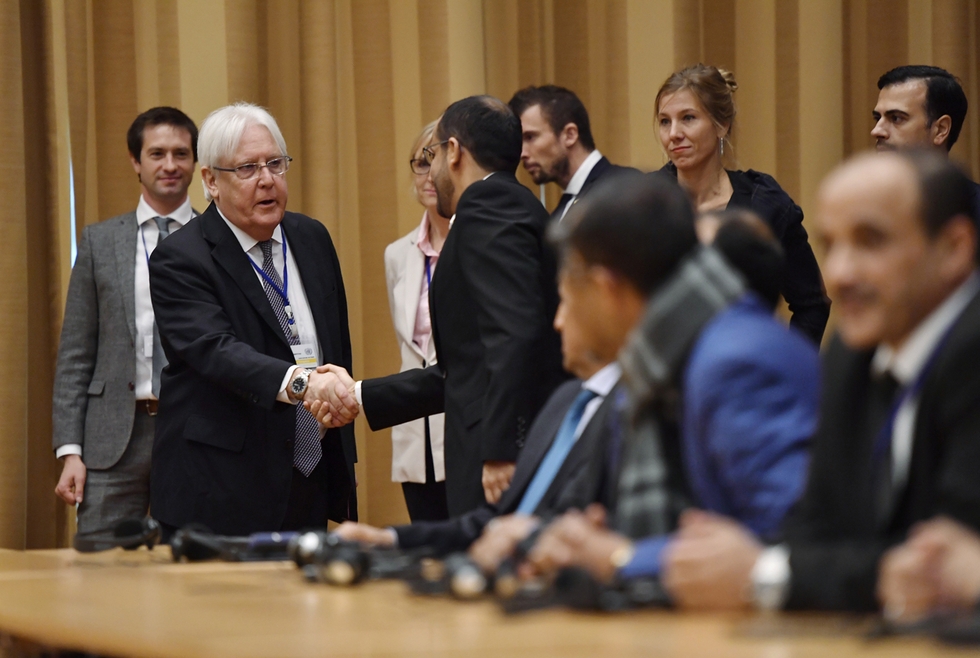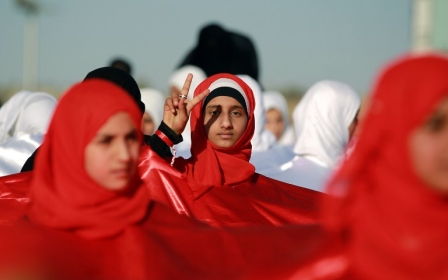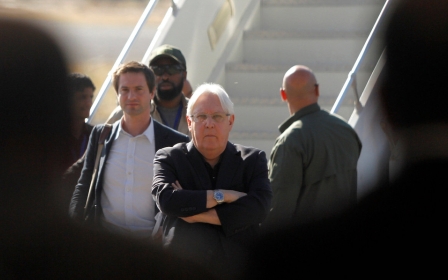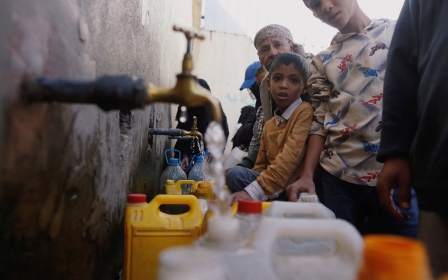First day of Yemen peace talks conclude with 'difficult' but 'critical' discussions

Yemen's government and rebels, locked in a devastating war, traded accusations on Thursday as they sat down for talks the United Nations described as "difficult" but "critical".
While the days leading up to the gathering saw the government and rebels agreeing on a prisoner swap deal and the evacuation of wounded rebels for medical treatment in Oman, both parties dug in on their demands as the talks began.
UN Secretary-General Antonio Guterres on Thursday urged the warring parties not to impose pre-conditions after both sides put forward demands, while the rebels said they were still assessing the "seriousness" of the hard-won talks.
"We will judge whether the Stockholm talks are serious or not tomorrow," Houthi spokesman Mohammed Abdelsalam told the Arabic-language Al-Mayadeen television channel on Thursday night.
The UN special envoy for Yemen, Martin Griffiths, said the talks presented a "critical opportunity" but did not amount to negotiations on a full end to the conflict.
Speaking on condition of anonymity, one UN official said the talks marked "the beginning of difficult work".
On the table at the Sweden talks is the fate of Hodeidah, the last rebel stronghold on Yemen's Red Sea coast and the conduit for 90 percent of vital food imports.
Prior to the talks, the UN sought to temper expectations, saying they aim to achieve "confidence building" between the two sides.
The Saudi-led military coalition, which includes troops trained by the US and the UAE, has for months led an offensive to retake Hodeidah.
The battle has sparked fears for more than 150,000 civilians trapped in the city. Saudi Arabia and its allies accuse the rebels of smuggling arms from Iran through Hodeidah, a charge Tehran denies.
"We'd like to take Hodeidah out of the conflict because... it's the humanitarian pipeline to the rest of the country," said UN envoy Griffiths.
Yemeni Foreign Minister Khaled al-Yamani, who heads the Saudi-backed government's delegation to the UN-sponsored talks, told AFP his team would deliver on a planned prisoner swap with the Houthi rebels.
But he refused to compromise on Hodeidah, home to Yemen's most valuable port.
"The Houthi militias must withdraw from the city of Hodeidah and its port and hand it over to the legitimate government, and specifically internal security forces," Yamani said.
Hamid Issam, a member of the team of the Houthi rebels in Sweden, dismissed Yamani's role in the talks altogether.
"We came here with the intention that these talks would succeed," Issam told AFP.
"But it is not up to Khaled al-Yamani... It is up to Saudi Arabia, the United Arab Emirates and the United States,” he said.
A Saudi-led coalition, which includes the United Arab Emirates, launched a military campaign in Yemen in 2015 to push back the Houthis and restore Yemeni President Abd Rabbuh Mansour Hadi to power.
The country has since been pulled into a dire humanitarian crisis, with as many as 14 million people currently on the verge of famine, the UN recently warned.
As the talks started, a World Food Programme official warned even halting the war would not end hunger in Yemen.
The head of the Houthis’ political council, Mohammed Ali Houthi, threatened on Thursday to bar UN planes from using the Yemeni capital's airport and keep it closed unless the talks led to its full reopening.
Sanaa international airport, in the rebel-held capital, has been largely shut down for years. It has been the target of air raids by the Saudi-led coalition, which also controls Yemeni airspace.
"We would like to see that airport open, but it needs to be assessed," Griffiths said. "We'd like to see progress on this."
International pressure to end the conflict has been ratcheted up in recent weeks after the murder of Saudi journalist Jamal Khashoggi focused attention on Saudi Arabia's foreign policy.
Griffiths' plans to host talks in Geneva in September collapsed on the opening day after the rebels refused to leave the Yemeni capital in case they were not allowed to return.
New MEE newsletter: Jerusalem Dispatch
Sign up to get the latest insights and analysis on Israel-Palestine, alongside Turkey Unpacked and other MEE newsletters
Middle East Eye delivers independent and unrivalled coverage and analysis of the Middle East, North Africa and beyond. To learn more about republishing this content and the associated fees, please fill out this form. More about MEE can be found here.




